Riot Police Break Up Hong Kong Rally For China's Uighurs
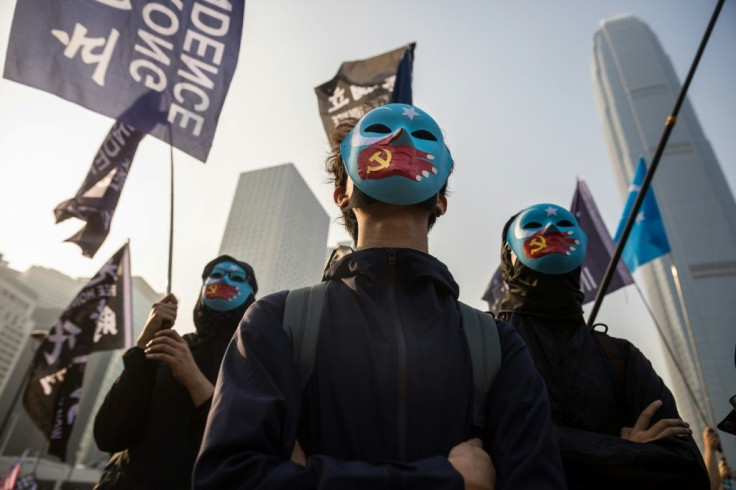
Hong Kong riot police broke up a solidarity rally for China's Uighurs on Sunday -- with one officer drawing a pistol -- as the city's pro-democracy movement likened their plight to that of the oppressed Muslim minority.
The initially peaceful rally descended into chaos when a small group of protesters removed a Chinese flag from a nearby government building and tried to burn it, an AFP reporter on the scene said.
Organisers stopped the flag being burned but riot police then swooped in with pepper spray, sparking anger from the crowd who threw water bottles.
One officer drew his side-arm and pointed it at the crowd but did not fire. Multiple protesters were seen being detained.
The rally in support of Uighurs is likely to anger Beijing.
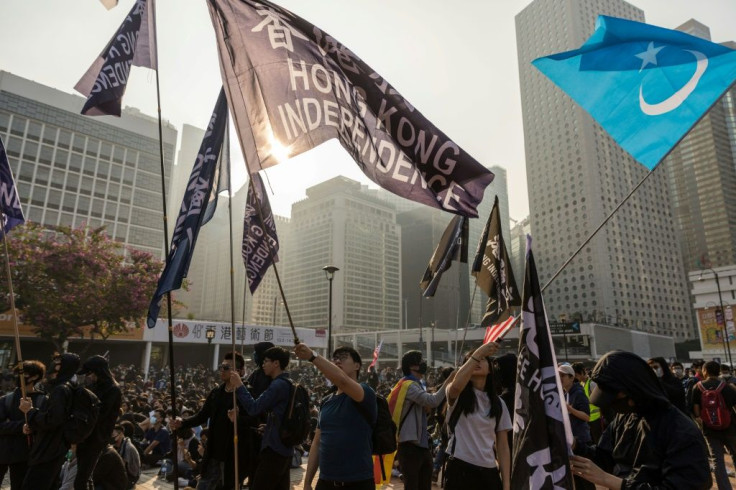
China has faced international condemnation for rounding up an estimated one million Uighurs and other mostly Muslim ethnic minorities in internment camps in the northwestern region of Xinjiang.
The emergence of a huge surveillance and prison system that now blankets much of Xinjiang has been watched closely in Hong Kong which has been convulsed by six months of huge and sometimes violent protests against Beijing's rule.
Pro-Uighur chants and flags have become commonplace in Hong Kong's marches but Sunday's rally was the first to be specifically dedicated to Uighurs.
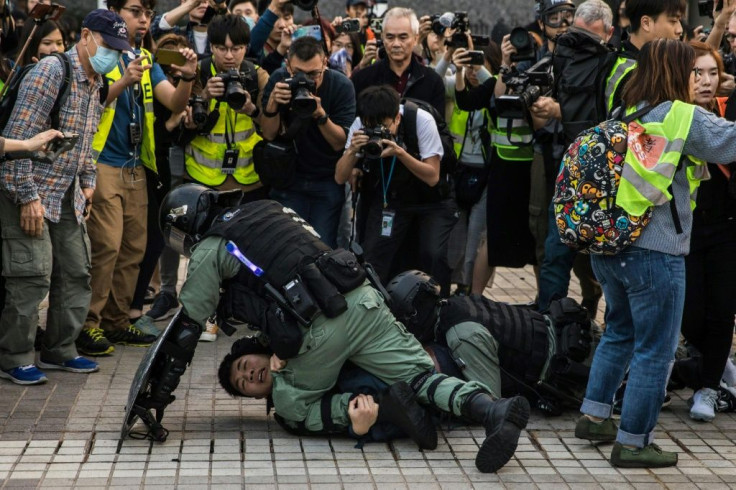
Around 1,000 people gathered in a square close to the city's harbourfront listening to speeches warning that the Chinese Communist Party's crackdown in Xinjiang could one day be replicated in Hong Kong.
"We shall not forget those who share a common goal with us, our struggle for freedom and democracy and the rage against the Chinese Communist Party," one speaker shouted through a loudspeaker to cheers from the crowd.
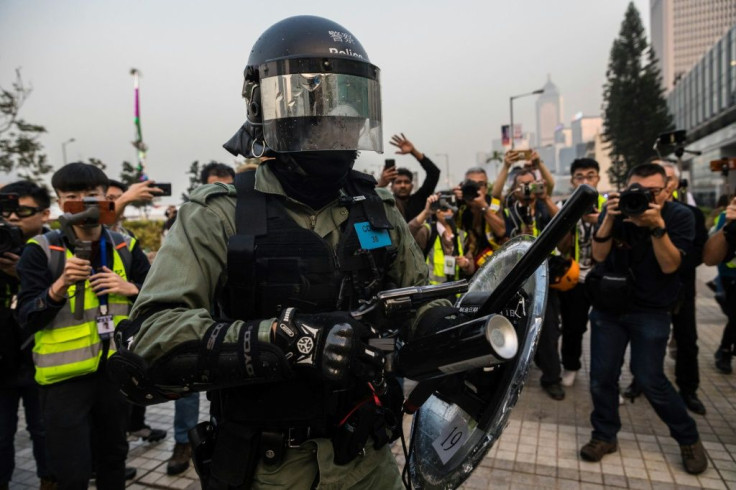
Many of those attending were waving the flag of "East Turkestan", the term many Uighur separatists use for Xinjiang, which has a white crescent moon on a blue background.
Others wore blue face masks displaying the East Turkestan flag. Flags for Tibet -- another restless region of China that has long been under a security lock down -- were also flown as well as Taiwan flags.
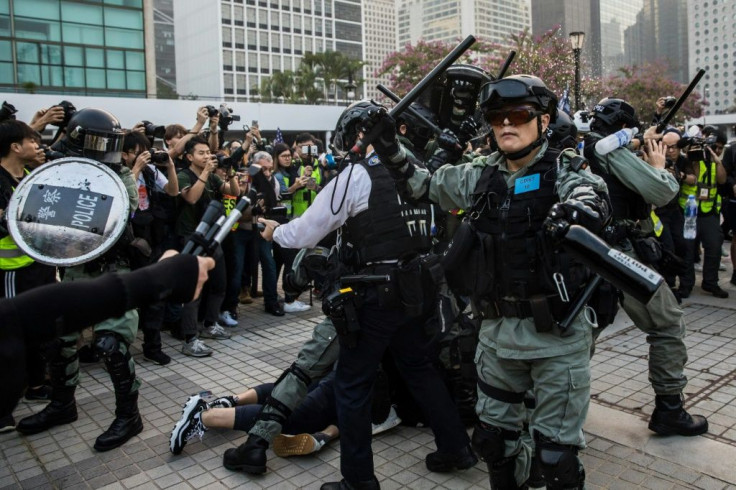
China runs Hong Kong on a "one country, two systems" model which allows the financial hub key freedoms that are denied people on the authoritarian mainland.
Come 2047 -- 50 years after Britain handed the city back -- the deal ends.
Many Hong Kongers fear an increasingly assertive China is already eroding those freedoms, especially since Xi Jinping became president.
Many at Sunday's rally said they felt a mainland style government is around the corner.
"The Chinese government are control freaks, they can't stand any opinions they disagree with," Katherine, a protester in her late twenties and a civil servant, told AFP before police moved in.
"In Xinjiang they are doing what they are doing because they have the power to do so. When they take over Hong Kong they will do the same," she added.
China rolled out a sweeping crackdown on Uighurs and other Muslim minorities after a series of deadly attacks by militants.
It bristles at any criticism of its policies in Xinjiang and warns against foreign criticism.
Beijing initially denied the existence of the Xinjiang camps, but now says they are "vocational training centres" necessary to combat terrorism.
Few Muslim countries have openly criticised China given its huge economic clout.
But increasingly high profile figures are speaking out.
Arsenal midfielder Mesut Ozil, a German of Turkish origin, criticised China's actions last week and the Muslim community's silence but has since come under a barrage of attacks from Beijing.
© Copyright AFP 2024. All rights reserved.





















